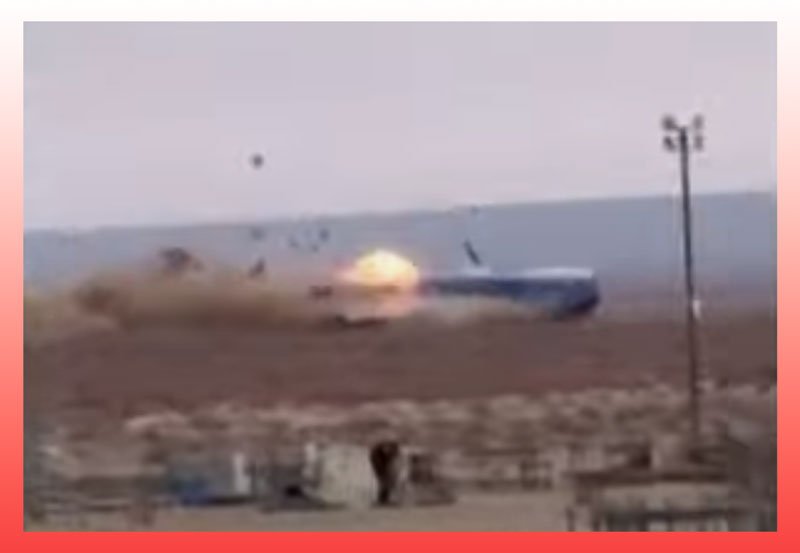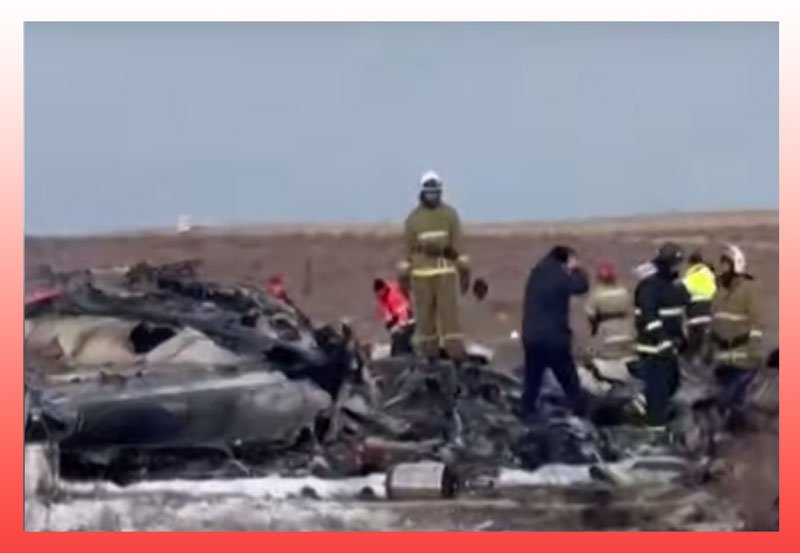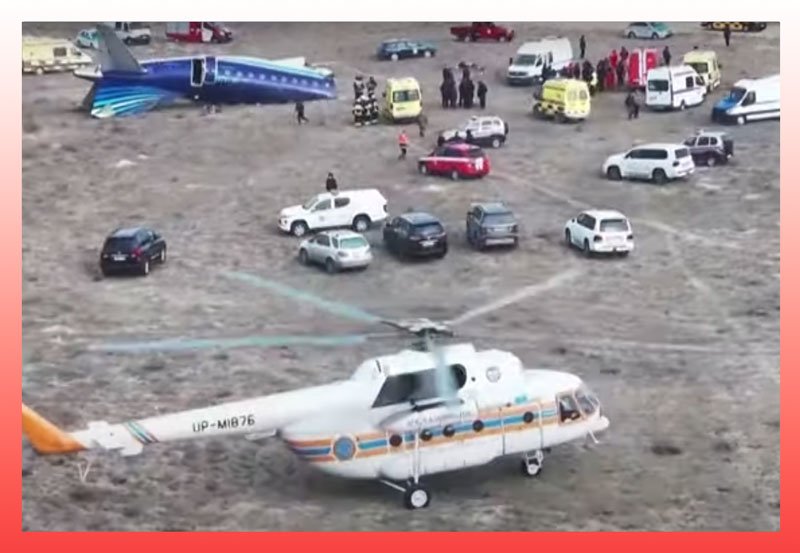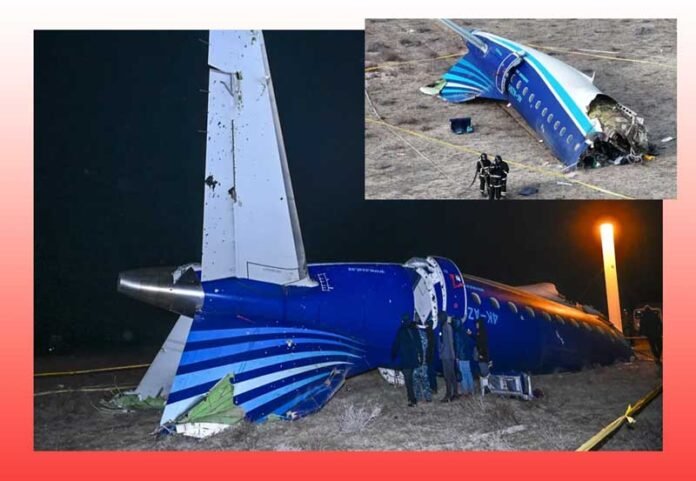On 25th December 2024, a military transport aircraft belonging to Azerbaijan’s Air Force was reportedly shot down near the Nagorno-Karabakh region. The plane, carrying both military personnel and essential supplies, crashed into a remote mountainous area. Emergency services were quick to respond, but the rugged terrain delayed rescue and recovery operations. Preliminary reports confirm casualties, though the exact number remains unverified as investigations continue.
Eyewitness accounts and preliminary investigations suggest that the aircraft was intercepted mid-air, with speculation pointing towards a missile strike. The incident occurred during heightened tensions in the region, where Azerbaijan and Armenia have been embroiled in a prolonged conflict over Nagorno-Karabakh. Defense analysts have noted radar anomalies and increased aerial activity near the crash site prior to the downing, indicating the possibility of targeted aggression.

While no group or nation has officially claimed responsibility, initial assessments point towards hostile action, likely as an extension of the ongoing regional dispute. The timing of the incident is significant, as it coincides with ongoing peace talks mediated by international players, adding a layer of complexity to an already volatile situation.
Probable Cause of the accident can be 1. Missile Strike Hypothesis, the aircraft’s debris pattern and reported mid-air explosion align with a missile strike scenario. Local military experts suggest the use of a surface-to-air missile, possibly launched from within contested territory. 2. Technical Malfunction, though less likely, investigators are also exploring the possibility of mechanical failure, given the challenging conditions in the region. 3. Intentional Sabotage, some sources allege internal sabotage, potentially aimed at undermining peace negotiations or escalating military engagement.

Impact on Regional Geopolitics is highly evaluating primarily. This incident has profound implications for the geopolitics of the South Caucasus and beyond. (a) Escalation of Conflict.
The incident is likely to exacerbate tensions between Azerbaijan and Armenia, threatening the fragile ceasefire brokered after the 2020 conflict. Retaliatory actions could spiral into renewed hostilities, jeopardizing regional stability. (b) Strained International Relations. Key players, including Russia and Turkey, who have vested interests in the region, may be drawn deeper into the conflict. While Russia positions itself as a mediator, Turkey’s open support for Azerbaijan could further polarize the situation. (c) Impact on Peace Talks. Ongoing peace negotiations facilitated by international bodies like the OSCE Minsk Group are at risk of collapsing. This event might embolden hardline factions in both nations, making compromise more elusive. (d) Broader Security Concerns. The incident raises concern about the proliferation of advanced weaponry in the region. The use of missiles or other sophisticated arms in civilian-populated areas underscores the urgent need for disarmament and confidence-building measures.
Immediate Reactions that happening are the major concern at this point. The Azerbaijani government has condemned the incident as a deliberate act of aggression. President [Insert Name] vowed to bring the perpetrators to justice and called for international support in investigating the attack. The Armenian government, while denying involvement, emphasized the need for de-escalation. However, statements from some political leader’s hint at skepticism over Azerbaijan’s motives, suggesting the possibility of internal dissent. The United Nations, NATO, and other international organizations have urged restraint, emphasizing the importance of impartial investigations. Statements from Russia and Turkey reflect their competing interests, with Russia calling for peace and Turkey expressing strong solidarity with Azerbaijan.

After this incident next steps and recommendations from the expertise we found. An independent, internationally monitored investigation is essential to ascertain the cause and identify the responsible parties. Transparency in this process could prevent the situation from further escalating. Mediation efforts must intensify to prevent a breakdown of diplomatic channels. Confidence-building measures, such as ceasefire monitoring and arms control agreements, should be prioritized. The international community should focus on providing humanitarian assistance to affected families and ensuring the safety of civilians in the region. Given the strategic importance of the South Caucasus, regional powers and global stakeholders must collaborate to develop long-term security frameworks.
The downing of the Azerbaijani plane is more than a tragic incident; it is a stark reminder of the precariousness of peace in volatile regions. As investigations unfold, the world watches with bated breath, hoping that this tragedy does not become the prelude to a broader conflict. The incident underscores the need for vigilance, dialogue, and a commitment to peace among all parties involved.




